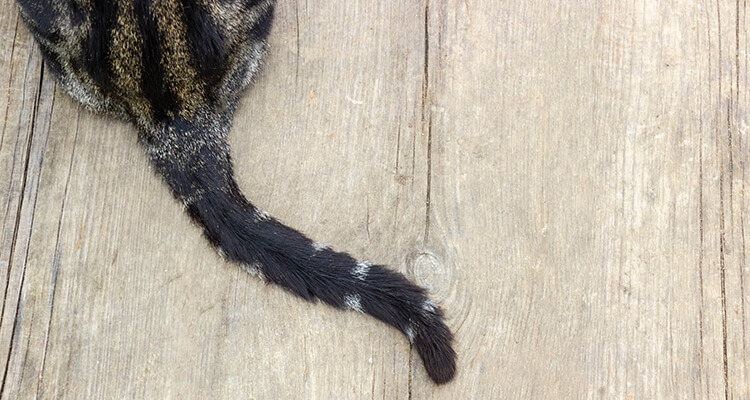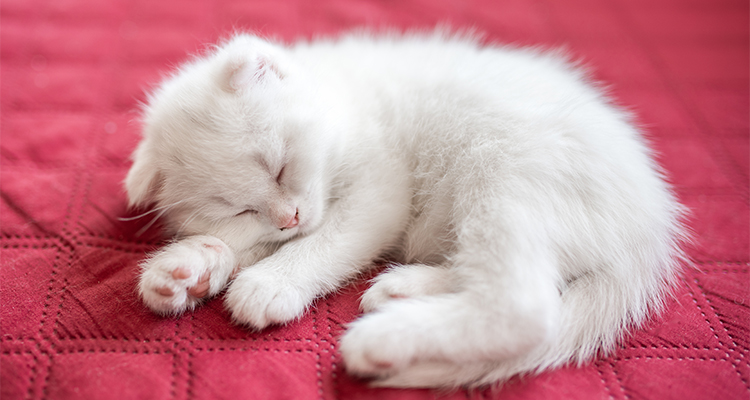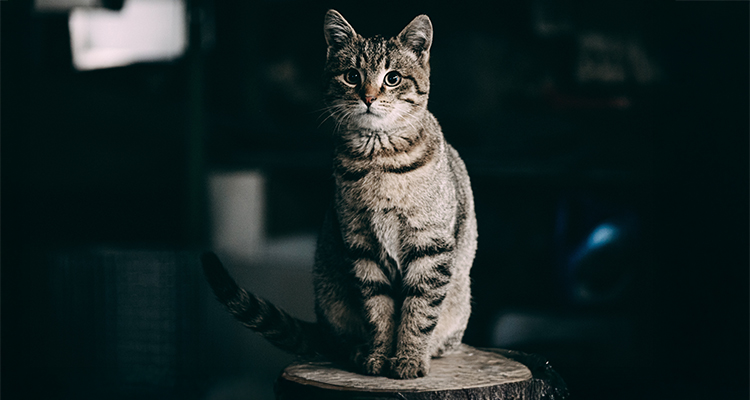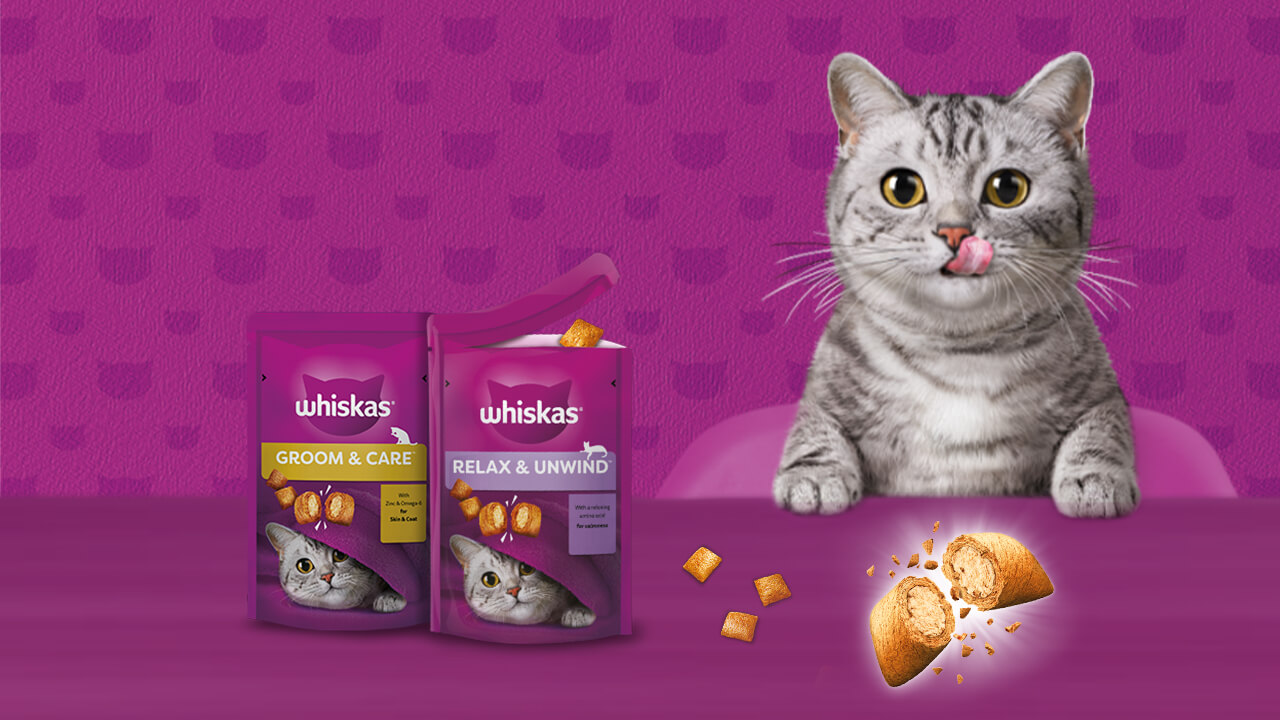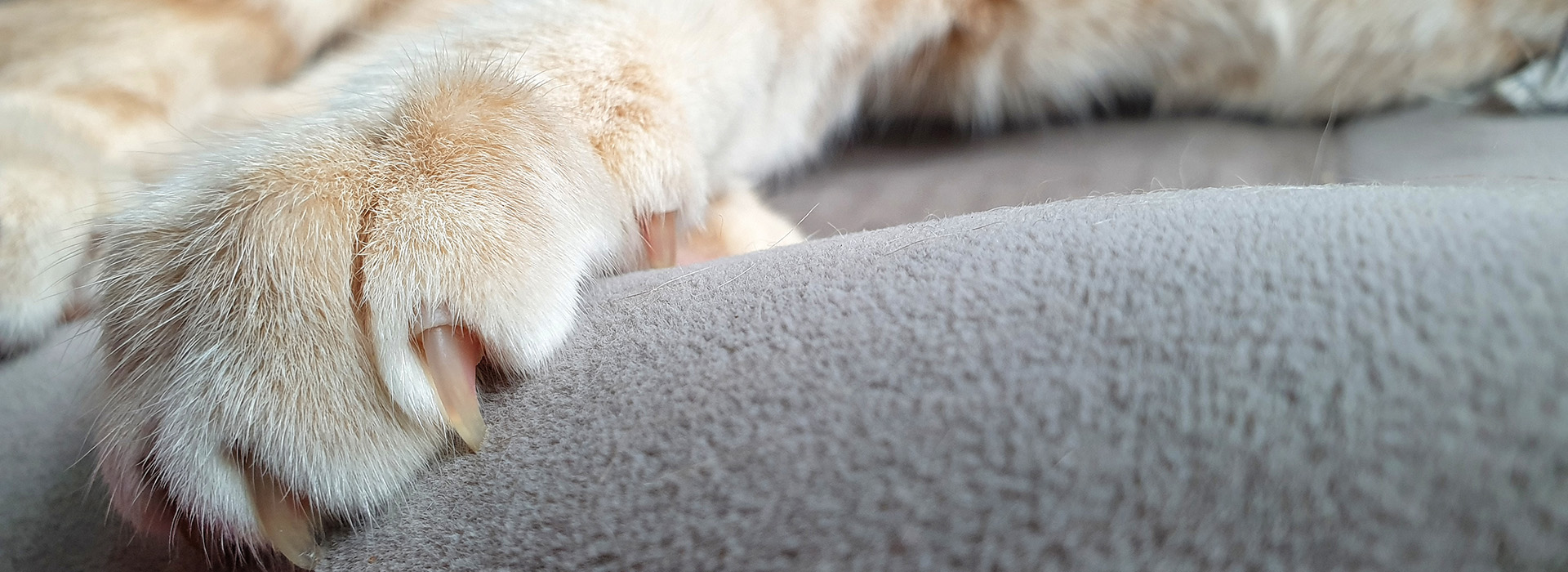

Cats are no strangers to being cute, especially when they start pushing their paws into your lap, rubbing and scratching several times in a row. This instinctual behaviour is called kneading, something most cats do.
When watching your cat push their paws into something soft, you’ve probably wondered, ‘why do cats knead?’ This behaviour is completely natural to our furry friends, with many cats kneading from kittenhood. Kittens knead to stimulate the production of milk from their mothers, but the contentment from the action means many cats continue to knead throughout their lives, helping them feel calm and relaxed.
Kneading also allows cats to spread their scent to mark territories via scent glands between their toes. Cat kneading may also help them stretch their muscles and relieve tension.
Read on as we explore some common questions about cats kneading, like ‘why do cats knead?,’ ‘why do cats knead their owners?’, and whether this behaviour carries any specific meaning.
What is cat kneading?
Kneading, also known as ‘pawing’ and ‘making biscuits,’ due to its resemblance to someone kneading dough, is an instinctive trait in cats. It is when a cat pushes their paws in and out against a soft surface in a repetitive, rhythmic motion. Typically, a kneading cat prefers softer spots, like blankets, cushions, and their owner’s lap.
Whilst some cats retract their claws to knead, others don’t, leading to some discomfort if they decide to prod your lap repeatedly! The action most commonly begins at a young age, with many continuing to knead throughout adulthood. But, although it is a natural, common behaviour for our purr-fect friends, not all cats knead.
You may notice your cat kneading and purring at the same time whilst you pet them, indicating a sense of contentment. On the other hand, cats may seem to knead for no real reason at certain times. It may not always be crystal clear why your cat is kneading, but there is no doubt that it is a common, instinctual behaviour for all cats.
What does it mean when your cat kneads you?
There’s nothing cuter than your cat crawling up into your lap and taking time to rest. It gets even cuter when they start to knead at your legs, as long as those claws are retracted! This leaves us with a common query - why do cats knead their owners?
There is no definitive answer for why cats knead their owners. That being said, it’s usually for the same reasons they knead other soft objects, like blankets or cushions, such as:
- Kitten instincts
- Marking territory
- A sign of affection
- Creating a resting space
- Stretching their muscles
Kitten Instincts
Cat kneading is an instinctual nursing behaviour from kittenhood, helping young cats promote the flow of milk from their mother. Many carry this normal cat behaviour into adulthood, repeating it when feeling comfortable and secure with their owner.
Marking Territory
A kneading cat may press their paws into your lap in order to mark you with their pheromone glands, claiming you with their unique scent.
A sign of affection
Since kneading is a behaviour from a young age, your cat may be kneading your lap as a sign of affection, helping build the bond between pet and owner.
Creating a resting space
Cats often press down surfaces to prepare a sleeping area. A cat kneading your lap or stomach may simply mean they are settling in for a snooze.
Stretching their muscles
Kneading is one way cats stretch their muscles and relax. When cats wake up, you may notice they start kneading to stretch their stiff muscles and become limber to get the most out of your playtime later on.
Do cats love you when they knead?
We’ve explored ‘why do cats knead their owners?’ but does this behaviour mean they love you? In short, yes, your cat is showing you affection as they only tend to knead when they feel safe, comfortable, and content. Many cats knead their owners because they have an emotional connection and are especially close. Even if their claws are a bit painful, take your cat kneading you as a compliment! It's simply a part of your kitten’s independent spirit!
When should you be concerned?
Cats kneading is rarely a cause for concern. That being said, excessive kneading can indicate that your cat is feeling stressed or uncomfortable. Kneading is usually a comforting action, so some may start to knead more than usual in an attempt to calm themselves.
Cats may pair kneading with biting or suckling, which can also be signs of stress or early weaning. If you notice your cat’s kneading behaviour becomes quite obsessive, you can try to pull them gently into a lying down position to help them settle and go to sleep. You can also try and distract them with a treat or a soft toy.
Remember, kneading is a natural behaviour for cats, but if you become concerned, visiting the vet is recommended. There, your veterinarian can check them over to rule out possible behavioural or medical problems.
Why do cats knead? - Summary
Kneading a common, normal behaviour for cats. Many cats knead from kittenhood, pushing their mother’s belly to stimulate milk flow whilst nursing. As cats get older, they often continue kneading soft objects, including cushions, blankets, and, of course, their owner’s laps or stomach.
A kneading cat typically feels relaxed and content. The reasons vary for why they do this, but most commonly, the action is a form of affection, or they are simply stretching ready for a lie down. This is why you may notice your cat drift off to sleep whilst kneading.
Although kneading is normal for most cats, look out for any changes in their behaviour. If kneading becomes excessive, you may need to visit your veterinarian to ensure there are no underlying health or behavioural issues.
Understanding your cat’s behaviours is essential for ensuring they are happy and healthy. To help you on your journey as a proud cat owner, we have in-depth guides to help you, from cats kneading to when to let your kittens outside. Just be prepared for some serious kneading action when your cat curls up on your lap after their first time out!
Commonly asked questions about cat kneading - FAQ
Do unhappy cats knead?
Some unhappy cats may knead to self-soothe if they are feeling depressed or anxious. A cat may display other changes if they are unhappy, such as hiding, making unusual noises, losing their appetite, or altered body language.
Why do cats push their head into you?
Cats usually push their head into you as a sign of trust and affection. This pushing behaviour, known as ‘bunting,’ can also be a way for cats to mark their territory with their scent. Therefore, they can identify and bond with you, their owner and trusted companion.
Does kneading mean a cat is stressed?
Cats kneading can mean they are stressed, as the action releases feel-good chemicals and helps them calm down. Kneading itself does not mean a cat is stressed, however. It is an instinctual behaviour that usually signals a cat is feeling safe and comfortable.


